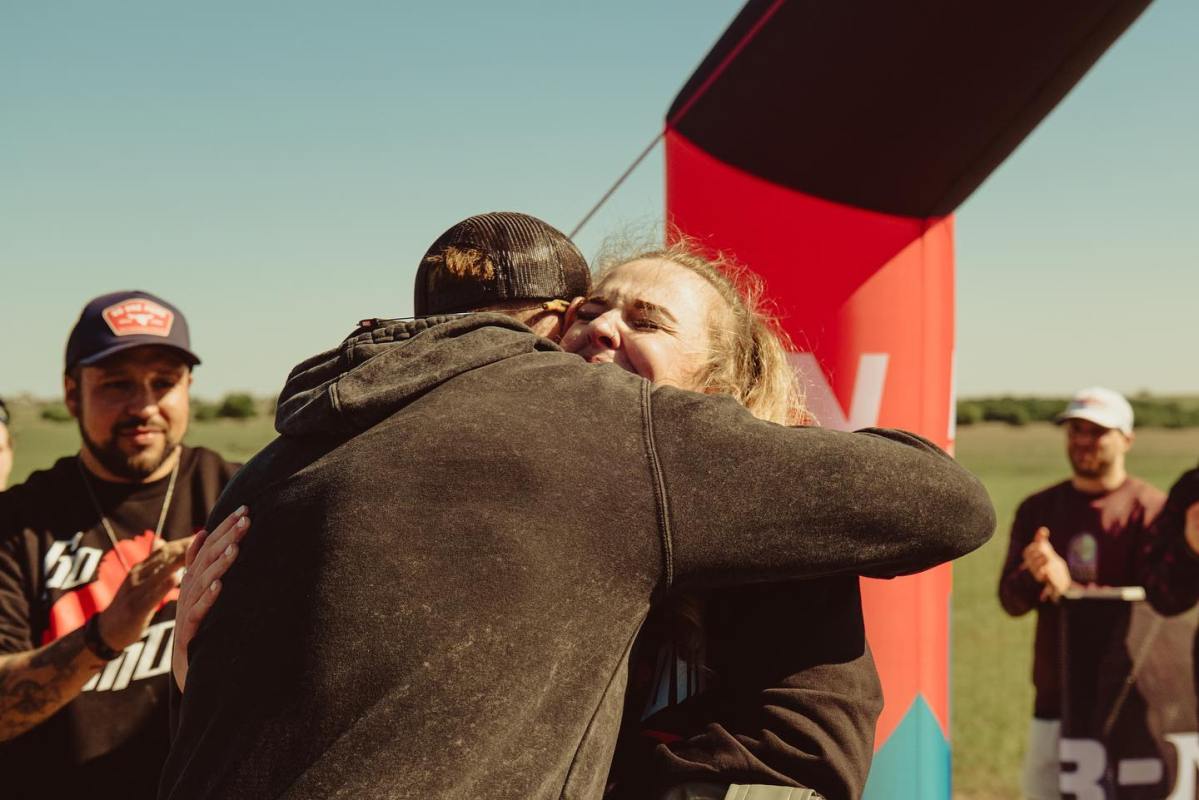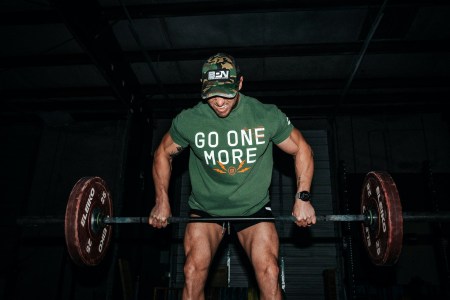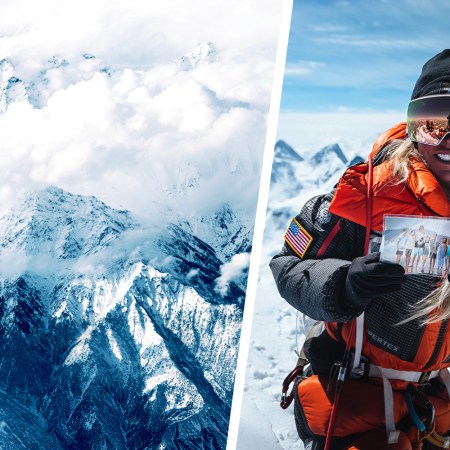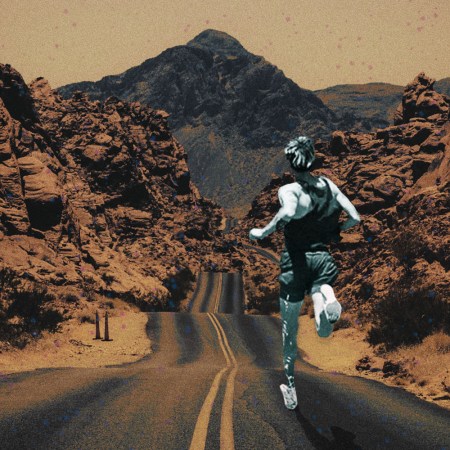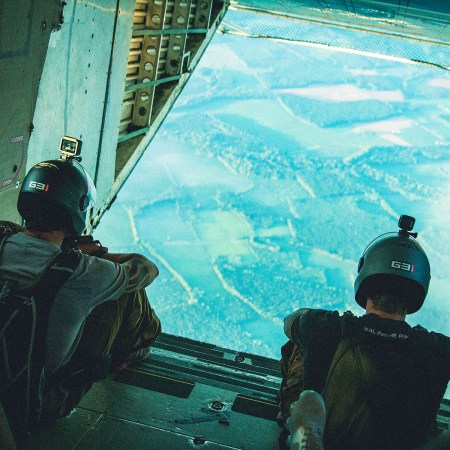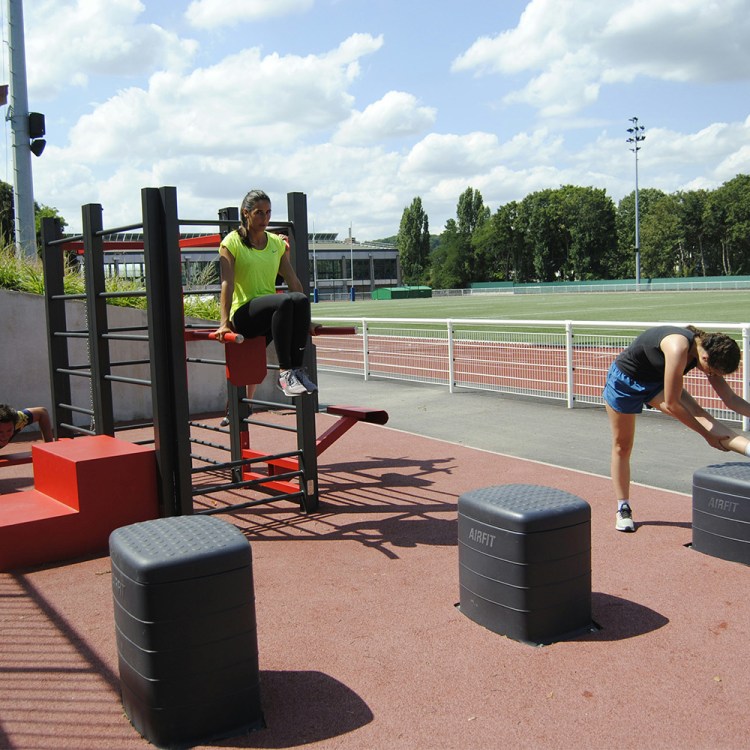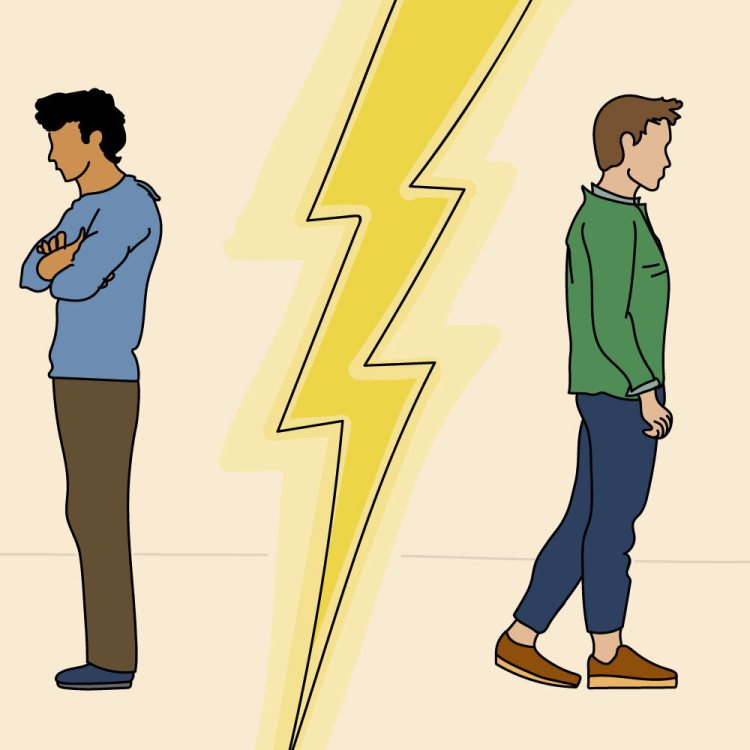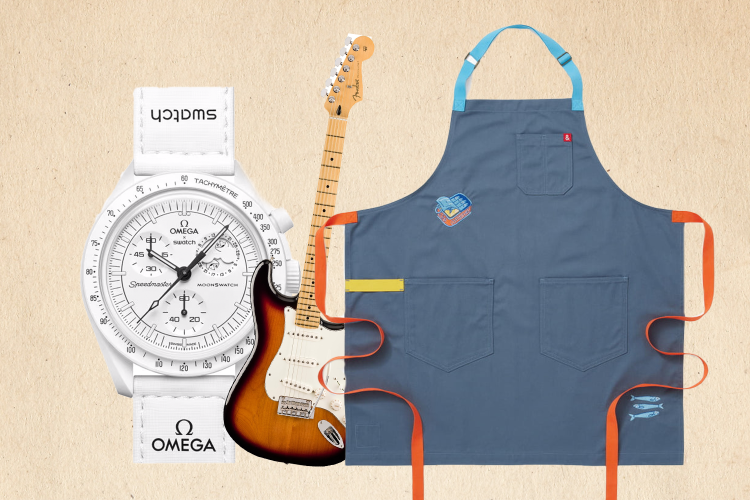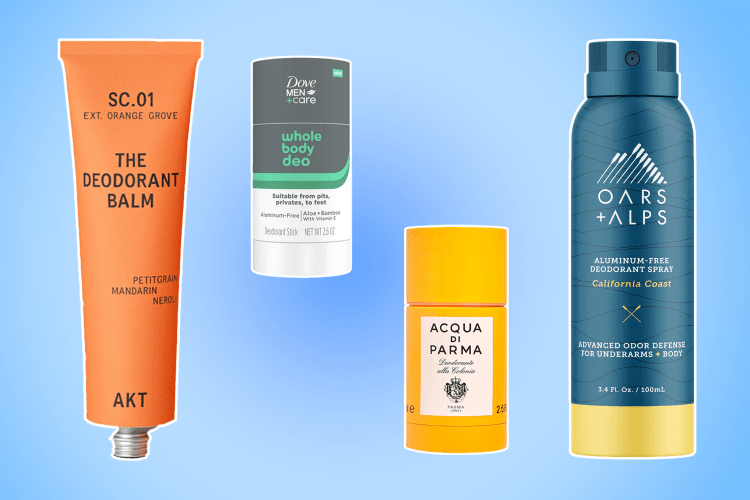I’m bouncing around in a packed bus towards an unknown location hours before sunrise. Next to me, a geared-up, athletically built bearded man is looking forward, intensely focused, staring into the impenetrable dark. Suddenly, light appears on the horizon from flood lamps, illuminating a one-story structure in the middle of an empty field. Pack on, we exit the bus towards the headquarters in relative silence. No, this is not the staging area for a covert military operation, though it feels something like it. It’s the Go One More Marathon.
The night before, I had no idea that I would be running in a marathon. But when you spend an evening with Nick Bare and his incredible Bare Performance Nutrition community, side effects include being spontaneously inspired to attempt something crazy. During an early dinner to welcome the 300 or so runners who had snagged a coveted spot on the recently formed race, I found myself moved by the conversations in the room. Many had traveled great distances to participate, motivated by Bare on a regular basis through his videos, social media and popular podcast.
For a good percentage of the people on that bus, Go One More is their first marathon experience. As someone who’s been at the most popular races in the world, I have to say I’m jealous. The Go One More Marathon has almost everything that you would anticipate from the larger iconic events like Boston or Chicago, like a super-helpful support staff, cool sponsor activations and top-notch swag. There’s only one thing really missing: the massive crowds of spectators. And it’s kind of incredible.
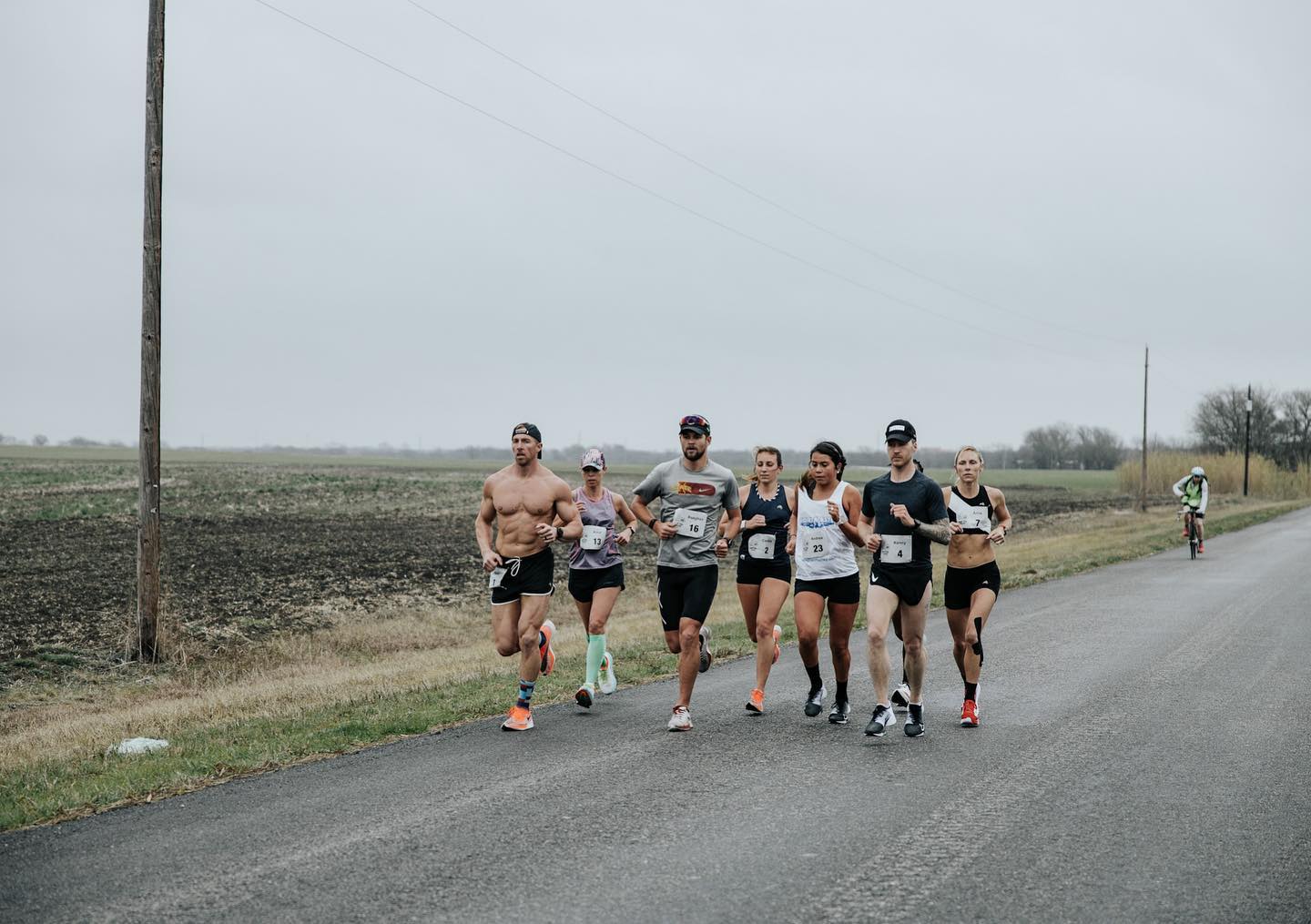
Building Something Special
“People have wanted me to throw a marathon or race for a while now,” says Bare. Given the love for his BPN community has shown to running stories told on the Nick Bare Podcast, the Instagram videos of him crushing miles in the early AM, and his More Than Miles documentary, that makes sense. There were opportunities, of course, but for the fitness entrepreneur, but nothing moved the needle enough to warrant the effort — it should come as no surprise that his benchmark was high. Eventually, inspiration hit after he ran the legendary Leadville 100.
“I didn’t want to just create another race,” explains Bare. “There are plenty of great races out there already. If I was going to build something, I wanted to build something really special.”
The Go One More Marathon is exactly that, and only possible on account of a very special set of circumstances. Three years ago, the US Army veteran was training to accomplish a sub-three-hour marathon, but due to the pandemic, there were very few legitimate places to train for or complete such a task. Racing events — even historic ones that had gone on annually for over a century — were getting canceled left and right as organizers were overwhelmed with concerns about potentially spreading the virus.
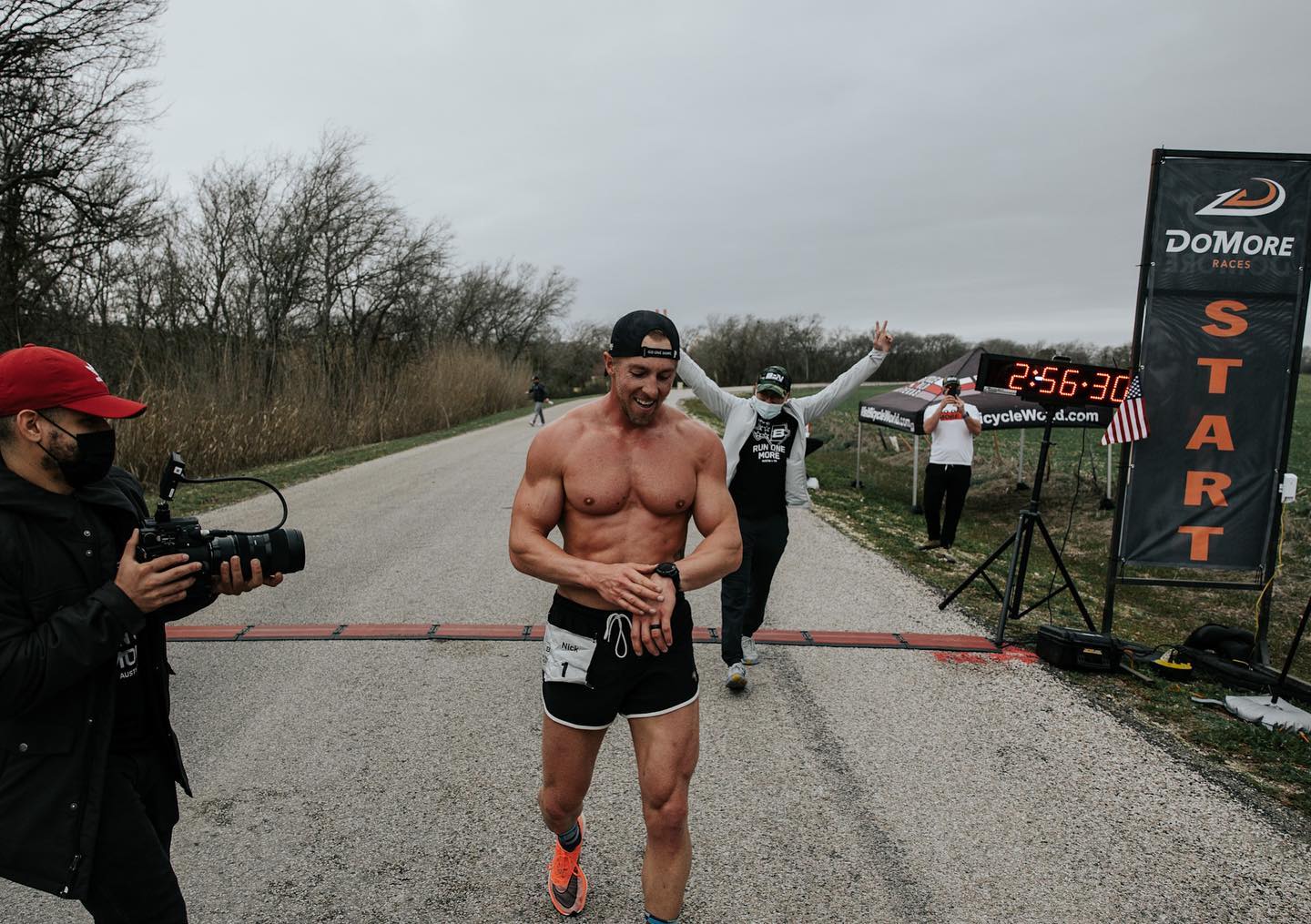
Bare’s First Sub-Three
Not one to be slowed down, even by a global health crisis, Bare began to search all of Texas for a fitting location to run the 26.2 miles. The right place eventually found him, through a friend: endurance coach and professional triathlete Natasha Van Der Merwe. It was a private ranch outside of Austin, with a rough yet ready gravel road, which wound through picturesque cow postures. The route was set up in four parts, with Bare doing a fourth of the distance in one direction before doubling back three times over. The team was even able to have the course validated as a qualifying race for the Boston Marathon.
So, with that box checked, Bare was able to set up a private marathon to run with his friends on Jan. 30, 2021. And it was on that winding gravel road that he was able to clock his sub-three-hour marathon, officially. “There have only been a few times in my life that felt like crossing that finish line,” says Bare. “It was powerful.” It was a feeling that Bare wanted to share with others. From there, Go One More was truly born.
How Nick Bare Pioneered the “Hybrid Athlete” Revolution
The bodybuilding ultramarathoner talks military days, supplements and what’s nextWhat It’s Like to Run “Go One More”
The next year, Bare and his team, with the help of a variety of sponsors, released 200 tickets for a race on the course to their community. The spots went lightning-fast and the event was a massive success. I was lucky enough to snag a bib for the second annual Go One More Marathon, and standing on that same gravel road I was ready to push myself harder than ever before. The hundreds around me were prepared to do the same, including elite runners like Charlie Lawrence. As you can imagine, the energy was off the charts.
The absence of spectators, friends and family has an interesting effect on a marathon. For starters, as AC/DC’s “Thunderstruck” boomed out of the speakers at the starting line, there were no familiar faces to look out on. No distractions. Every ounce of energy is contained on the course, and you’re steered towards sharing the experience with your fellow runners. The next effect hits later, when you are quite a few miles deep into your run; it’s one that Bare puts a lot of stock in: the isolation effect.
“Because there are no spectators, and you’re running in this remote location, almost every runner in this race feels isolation,” says Bare. “Completing a marathon can be a life-changing challenge, and there’s something powerful about experiencing that in isolation.” I know personally, somewhere around the nine-mile mark I found myself alone and was given more time for self-reflection than I had in years. I couldn’t help but think, “This is not a moment that you will ever have running the New York City Marathon.” But that’s in line with Bare’s objective.
For the first-time marathoners of the Go One More, there is also the benefit of getting to anguish in solitude. There are no crowds to worry about, friends or family to disappoint. The only person really holding you accountable on that gravel is yourself. There were moments when I thought about how easy it would be to just stop and take a pleasant stroll into the cow pasture. Nobody would have batted an eye, except maybe the cows, but that internal struggle is just part of that solo dance.
That’s not to say that there aren’t beautiful moments of kinship that happen at the Go One More Marathon. In fact, the kinds of people that make up the BPN community — and travel from across the country to participate in a marathon like this — are exactly the kinds of people you want to hit a run with. And because the route doubles back on itself, there are plenty of face-to-face interactions that break up that isolation. Those interactions are exactly what you expect, the perfect mix of shared suffering and buzzing excitement, especially as the finish line grows nearer.
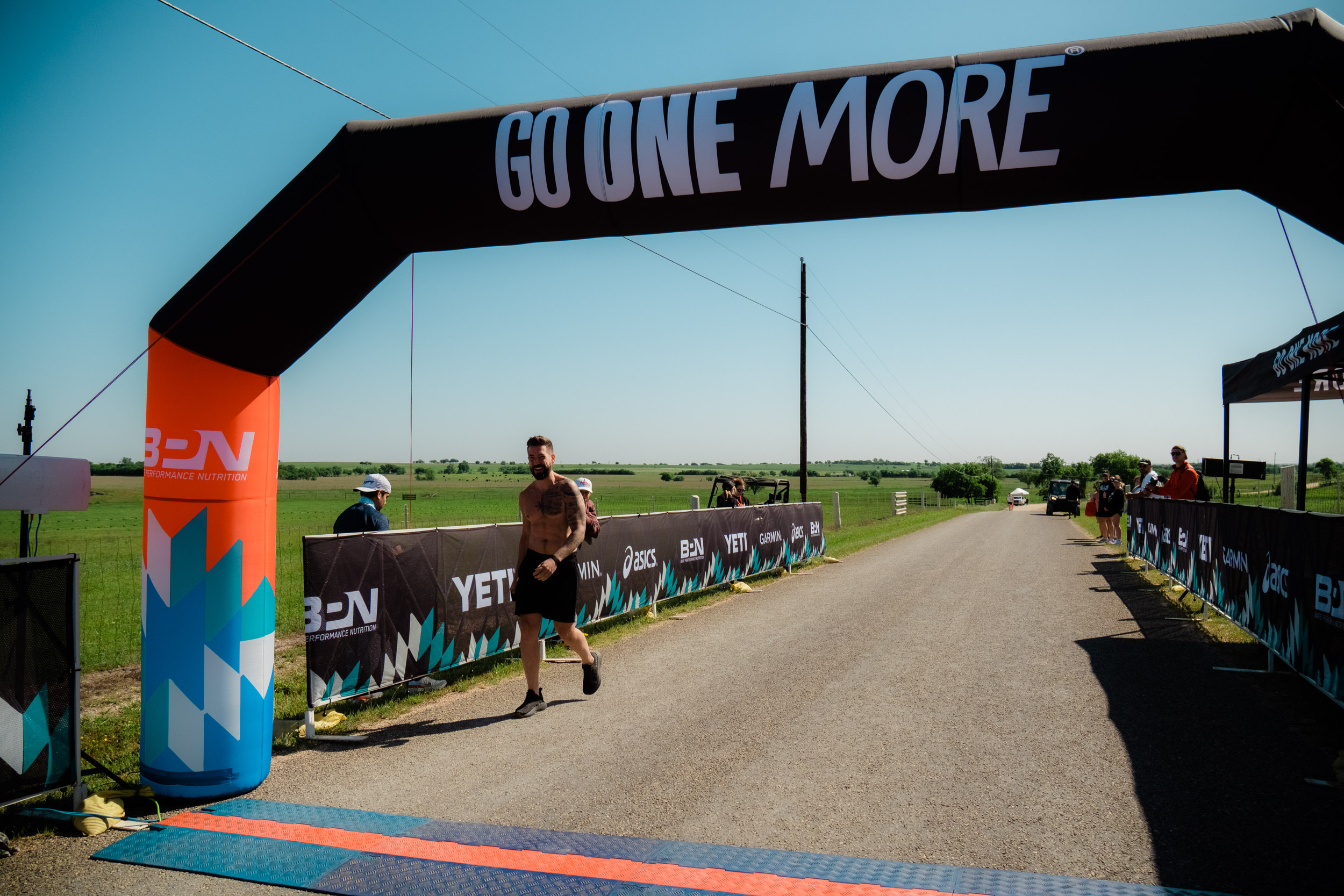
Reaching the Finish
The suffering hits an all-time high at the end of the route, with the last few miles containing the steepest uphill portion. Unless you are one of the very few who have run the course before, it’s an unexpected but welcome crucible. The runners of the Go One More Marathon are there to persevere in uncomfortable circumstances, which is why every runner signed up despite not knowing the race location. As the end grows closer, the suffering starts to fade and all that’s left is excitement.
Bare prides himself on being there at the finish line, handing out the medals and bear hugs. I can confirm that Bare gives a great hug.
For all the finishers, there were massages, cold plunges from Restore Hyper Wellness, Normatec boots, gear from Asics, and most importantly, lots of tacos. The post-race experience couldn’t be any more perfect, just another reason that the Go One More Marathon might just be the best running event out there. Next year, Bare and company are planning on releasing a few more tickets, but they will likely be sold out quickly. So be sure to bookmark Bare’s page for announcements, and I’ll see you when it’s time to Go One More again.
Whether you’re looking to get into shape, or just get out of a funk, The Charge has got you covered. Sign up for our new wellness newsletter today.
